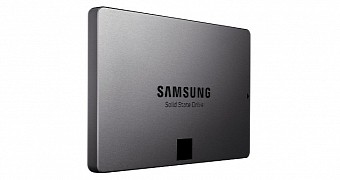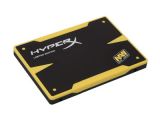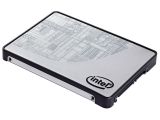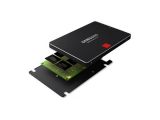Solid state drives still carry the so-called stigma of limited write cycles, which cause the data transfer performance to gradually drop the more they are used. Some people have decided to see just how much truth there is to that vision.
The people at The Tech Report took matters into their very own hands and subjected a number of solid state drives to the most stressful tests they could come up with.
Six storage units were tested, including Kingston's HyperX 3K, Samsung's 840 Pro, and Intel's 335 series, and the results were quite surprising.
We mean that in a good way. In every case, the solid state drives lasted well past the limits specified in their product releases.
How the tests were conducted
By the reckoning of the people who conducted the tests, typical users only write one or two terabytes of data in a year on a solid state drive.
What the testers did was set the drives to continuously write and rewrite 10 GB of small and large files while they sat back and watched the fireworks.
Figuratively speaking of course. There were no instances of drives burning, melting or otherwise catching fire or exhibiting a related effect.
Meanwhile, as the writes and rewrites kept happening, the SMART technology (self-monitoring and reporting technology) continuously moved thousands of bytes from failing flash sectors.
SMART used to only be available on hard disk drives, moving data from bad sectors of the magnetic platters to viable ones. However, SSDs didn't lack that service long, and they've been using it for years.
Most of the drives eventually failed before they managed to write one petabyte (one million gigabytes, 1 million GB as it were).
The Kingston's HyperX 3K and Samsung’s 840 Pro, however, managed to last longer. A lot longer, not failing even after writing two petabytes each.
What this means
That solid state drives are very long-lived, capable of lasting for up to a thousand years of normal usage.
True, for a small, informal test conducted in a controlled environment, with no temperature fluctuations, humidity, current ups and downs, etc. But it still shows that NAND Flash-based storage devices are a lot more enduring that everyone already thought.
Until now, the only thing we could be sure about was that SSDs wouldn't be damaged too easily if they were dropped or struck somehow. They lack moving parts, so there isn't anything that can be jostled or scratched inside. These tests are evidence that SSDs can more than withstand the strength of time as well, in comparison.

 14 DAY TRIAL //
14 DAY TRIAL // 


